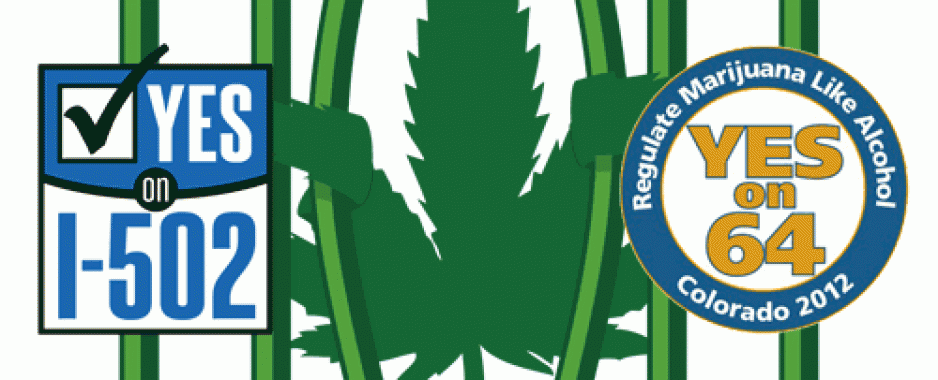Colorado and Washington State make history, become first US states to regulate, tax and control marijuana
Colorado and Washington have become not just the first U.S. states – but the first political jurisdictions anywhere in the world – to approve regulating, taxing and controlling marijuana similar to alcohol.
The Drug Policy Alliance and its electoral arm, Drug Policy Action, worked closely with local and national allies to draft these initiatives, build coalitions and raise funds.
“The victories in Colorado and Washington are of historic significance not just for Americans but for all countries debating the future of marijuana prohibition in their own countries,” said Ethan Nadelmann, executive director of the Drug Policy Alliance. “This is now a mainstream issue, with citizens more or less divided on the issue but increasingly inclined to favor responsible regulation of marijuana over costly and ineffective prohibitionist policies.”
The Colorado and Washington initiatives inspired diverse coalitions that included traditional drug policy reformers, law enforcement, organized labor, advocates for fiscal responsibility, mainstream civil rights organizations, advocates for children, and people from across the political spectrum. The campaign in Washington gained strength and legitimacy from the unprecedented number of endorsements by elected officials as well as former and current law enforcement officials.
“Marijuana policy reform remains an issue where the people lead and the politicians follow,” said Ethan Nadelmann, “but Washington State shows that many politicians are beginning to catch up.” Also notable was the silence of Obama administration officials who had spoken out two years ago against California’s Proposition 19 but who refrained from intervening this year. “That bodes well,” said Mr. Nadelmann, “for both states' prospects of implementing their new laws without undue federal interference.”
Never before has support for making marijuana legal been so widespread. Last year, a Gallup poll found for the first time that 50 percent of Americans support making marijuana legal, with only 46 percent opposed. Public support has shifted dramatically over the last two decades – especially over the last five years – as majorities of men, 18-49-year-olds, liberals, moderates, Independents, Democrats, and voters in Western, Midwestern and Eastern states now support making marijuana legal. Last week, the annual FBI Uniform Crime Report found that police made 757,969 arrests in 2011 for marijuana law violations in the U.S. – 86 percent of these arrests were for possession only. Marijuana arrests comprise one-half of all U.S. drug arrests.
Other reform measures also prevailed in California and Massachusetts. California’s Proposition 36 – which will significantly reform the state’s notorious “three-strikes” law – is expected to pass by a wide margin. Moving forward, Californians convicted of a third nonviolent felony – including drug law violations – will no longer receive a mandatory 25-to-life sentence. The Drug Policy Action Issues PAC was one of the primary financial contributors to the Prop. 36 campaign. Meanwhile, Massachusetts became the 18th U.S. state since 1996 to legalize marijuana for medical purposes.
To read this news in Bulgarian, please click here.
Keep up-to-date with drug policy developments by subscribing to the IDPC Monthly Alert.
